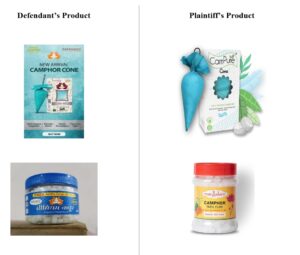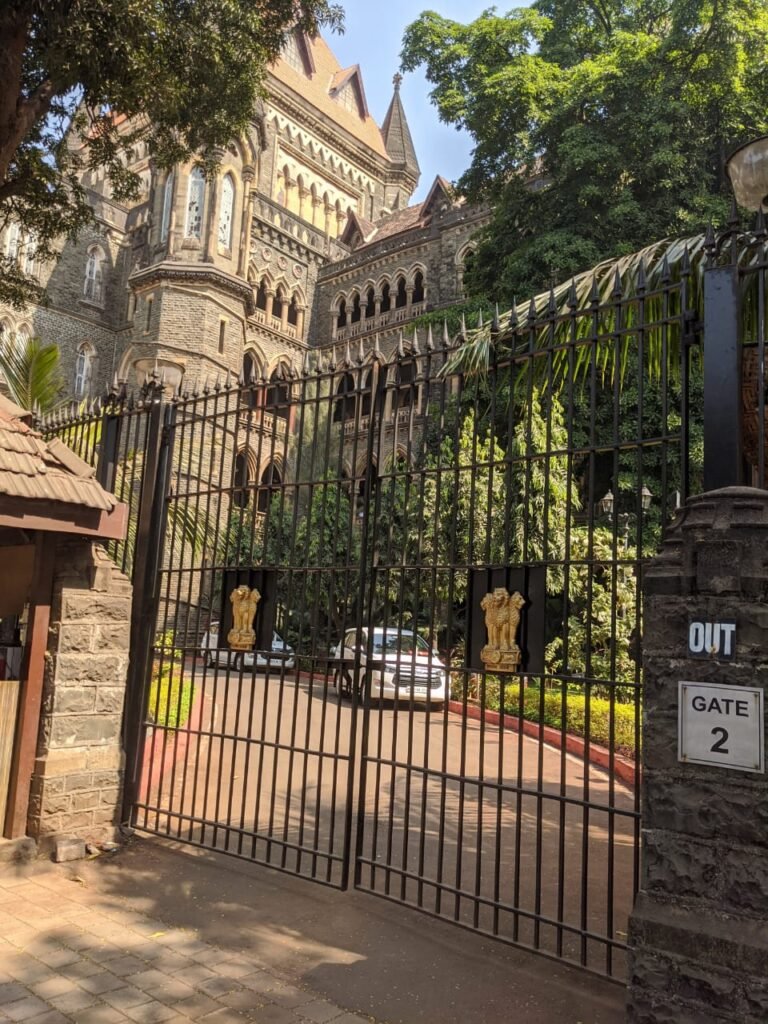In India’s fast-paced FMCG sector, legal battles over intellectual property is quite common, particularly as companies grow and diversify their offerings. A notable case that garnered significant attention involved Patanjali Ayurveda (“Defendant”), a major player in the Ayurvedic and natural products industry, and Mangalam Organics (“Plaintiff”), a prominent manufacturer of camphor products. The Plaintiff accused the Defendant of trademark infringement, claiming that the branding and packaging of the Defendant’s camphor products were very similar to the Defendant’s trademark, which could potentially mislead consumers. This case not only sheds light on the intricacies of trademark law in India but also emphasizes the critical need for companies to maintain clear and distinct brand identities in a highly competitive market.
Overview Of The Dispute
The Plaintiff offers a diverse range of products, including camphor, and other chemicals used in various applications, from religious rituals to industrial uses. The Plaintiff has built a robust presence in the market, leveraging its commitment to quality and innovation. Over the years, the Plaintiff has developed a strong brand identity, earned substantial goodwill and established itself as a trusted name in the industry.
The Defendant entered the camphor market with its product offering. However, this move was met with resistance from the Plaintiff, which accused the Defendant of trademark infringement. The crux of Plaintiff’s complaint was that the Defendant’s branding and packaging for its camphor product closely resembled those of the Plaintiff, creating a likelihood of confusion among consumers.
In response to Plaintiff’s allegations, the Bombay High Court issued an interim injunction on August 30, 2023, prohibiting Patanjali from continuing to use the contested packaging and trade dress. The purpose of an interim injunction in such cases is to prevent further potential damage to the Plaintiff’s brand while the case is still pending. Despite the High Court’s injunction, Defendant allegedly continued to distribute the camphor products with the disputed packaging.
The Allegations
The Plaintiff claimed that Patanjali’s use of identical package design, color schemes, and branding features for their camphor product constituted trademark infringement, as provided herein below. The Plaintiff contended that the visual similarities between the two products might cause customers to believe that the Defendant’s camphor was affiliated with or sponsored by Plaintiff.

The main concern was the possibility of misleading the customer, which the Plaintiff claimed would effect the goodwill and reputation of its trademark. Given that both the parties are in the same trade, the Plaintiff claimed that Defendant’s actions harmed its reputation and might result in a loss of market share.
Plaintiff’s Defense
The Defendant responded by arguing that the name “camphor” is generic and widely used, hence no single corporation can claim exclusive rights to it. The Defendant asserted that its product was clearly labeled with the “Patanjali” moniker, which is already well-known and recognized in a variety of product categories. The Defendant contended that consumers would be unlikely to confuse its camphor with the Plaintiff’s trademark ‘Mangalam Organics’.
The Defendant further stated that the package similarities were coincidental and not meant to confuse consumers or infringe on Mangalam’s trademarks. The corporation stated that its total brand identity was strong enough to distinguish itself in the market, lowering the likelihood of customer misunderstanding.
Court’s Decision
The case was heard by the Bombay High Court, examined the packaging and trade dress of both the Plaintff’s and the Defendant’s trademark and packaging of the products. It found significant similarities in the visual elements, such as color schemes, design layouts, and overall presentation. These similarities were deemed likely to mislead consumers into thinking that the Defendant’s products were associated with, or originated from, that of Plaintiff’s.
The Court recognized that the Plaintiff had built a strong and reputable brand identity over the years. Their camphor products were well-known in the market, and their packaging had become associated with certain qualities such as purity and reliability. The High court acknowledged that any misrepresentation or confusion caused by Patanjali’s similar packaging could cause irreputable harm to the Plaintiff’s goodwill and reputation and dilute its market presence.
In light of the evidence presented, the Court had earlier issued an interim injunction on August 30, 2023, which prohibited the Defendant from using the contested packaging and trade dress. This injunction was intended to prevent further potential damage to Plaintiff’s brand while the case was being decided.
The court observed that the Defendant continued to sell the camphor product with the disputed packaging despite the injunction. This non-compliance was viewed seriously by the court, leading to further legal action against the Defendant. In its order dated July 8, 2024, the court noted that Defendant’s continued sales amounted to ₹49,57,861, a clear violation of the court’s directive.
As a result of this violation, the court ordered the Plaintiff to deposit ₹50,00,000 as a penalty for failing to adhere to the injunction order. This penalty was intended not only to address the specific non-compliance but also to send a broader message about the importance of respecting court orders.
While the court’s judgment in this phase of the case dealt primarily with the interim injunction and the subsequent violation, the broader case concerning the alleged trademark infringement and the final resolution of the dispute remained ongoing. The court’s findings in this judgment, however, reinforced the seriousness of the infringement allegations and set the tone for the subsequent legal proceedings.
Conclusion
The present case underscores the critical role of clear and distinct branding in today’s competitive market. As companies grow and diversify, paying close attention to trademark law and intellectual property rights becomes even more crucial. This case serves as a reminder to all businesses about the legal risks associated with branding and the importance of safeguarding intellectual property to ensure market integrity and maintain consumer trust.
Authors: Shalini Bajpai, Ananya Chakraborty & Anupriya Dhawan

